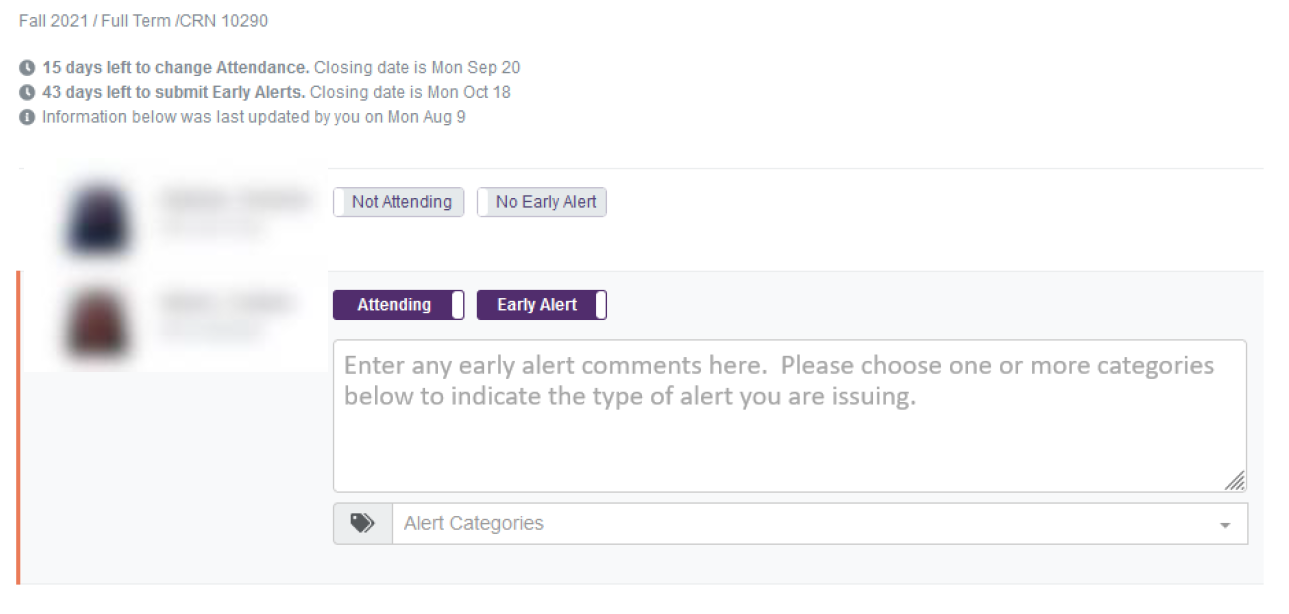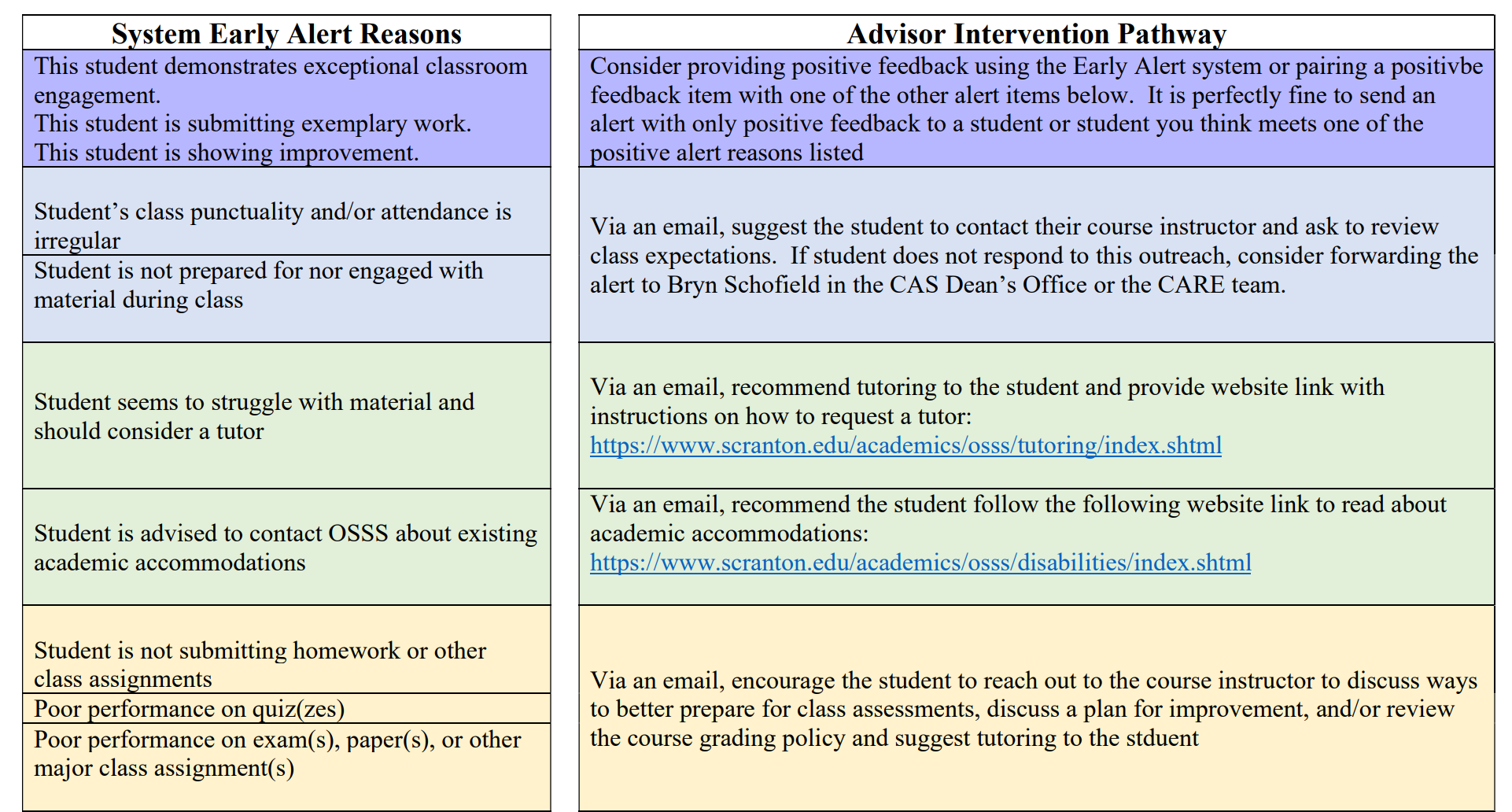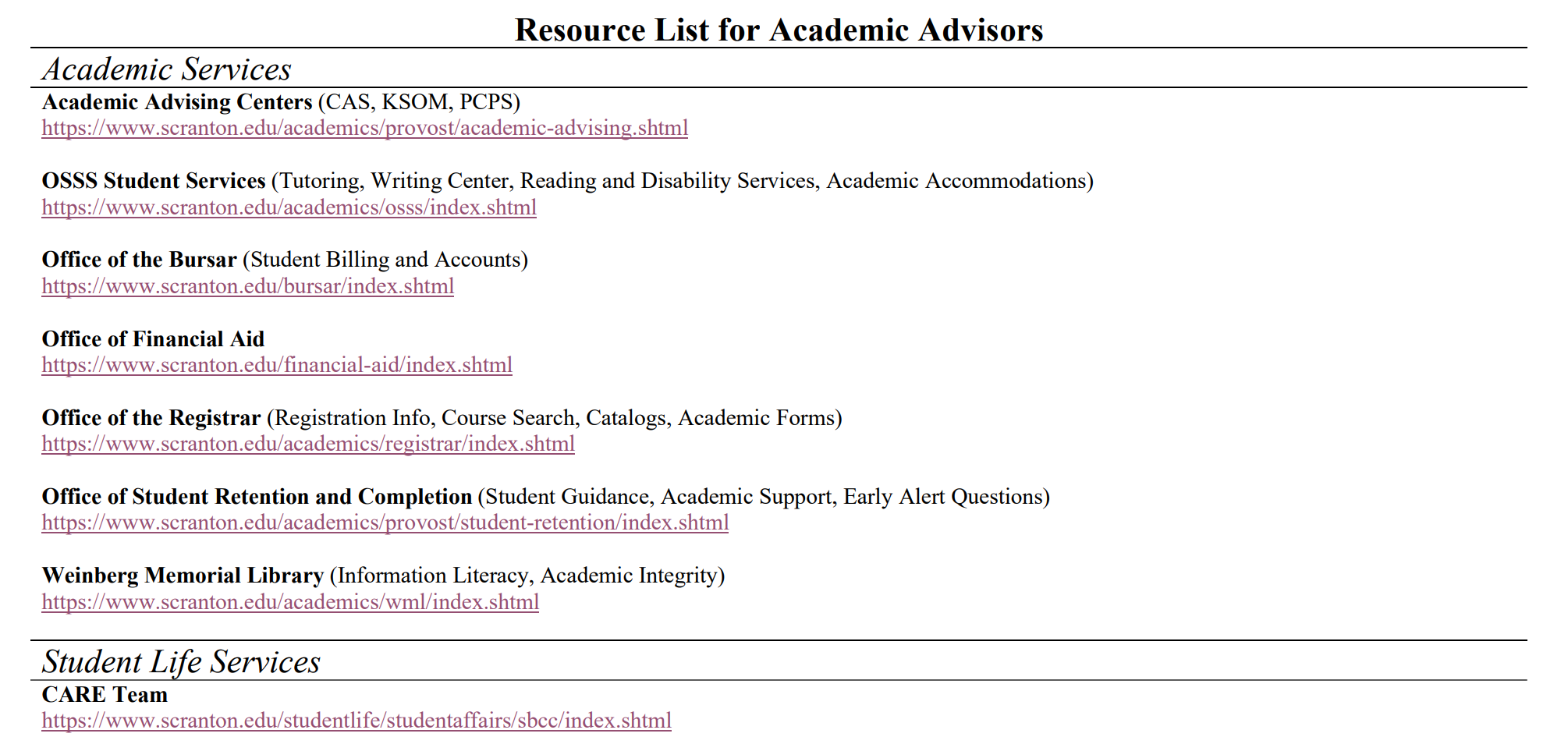Student Attendance and Early Alert System

2025-2026 Academic Year Guidance
In collaboration with the Office of Student Retention and Completion and the Office of the Registrar, the university has implemented a Student Success Attendance and Early Alert System. Early Alert is a proactive, student-centered system of communication between faculty, staff, and academic advisors that facilitates the identification of students who appear to be struggling in the academic setting. The goal of the system is to provide students with resources and support early in the semester to aid them in their success at the university.
| Click Here for More Information on Early Alert Systems Click Here for Academic Advisor Resources |
Instructor Resources
Watch the video below to see a Demonstration of the Attendance and Early Alert system.
https://www.scranton.edu/academics/provost/student-retention/early-alert.shtml
Click this link or the image to access the Instructions Document for the Attendance and Early Alert system.
Click this link or the image to access the Guidance Document for the Attendance and Early Alert system.
Click this link or the image to access the Student Guidance Document for the Attendance and Early Alert system.
Click this link or the image to access the Advisor Pathways Document for the Attendance and Early Alert system.
Click this link or the image to access the Advisor Resources Document for the Attendance and Early Alert system.
About Higher Education Early Alert Systems
Early Alert systems have been prevalent since at least the early 2000's and have shown success when they target specific student populations and have an effective intervention strategy[i]. These systems are only one component to a successful support system for students. In a 2013 survey, Noel-Levitz reported that 90.5% of four-year private colleges and universities reported they utilized an Early Alert system[ii]. The effectiveness of these systems relies heavily on the system having a robust feedback loop to stakeholders and consistent strategic interventions by academic advisors. In fact, a November 2019 best practices report on first year advising show that universities are relying on a centralized software platform to connect instructors to academic advisors as well as offering regular training to academic advisors on campus resources “to meet students’ multi-faceted needs.”[iii]
[i] Early Alert Systems in Higher Education. Hanover Research, Nov. 2014, www.hanoverresearch.com/wp-content/uploads/2017/08/Early-Alert-Systems-in-Higher-Education.pdf
[ii] 2013 Student Retention and College Completion Practices Report for Four‐Year and Two‐Year Institutions.” Noel‐ Levi. Op. cit., pp. 10, 19.
[iii] Best Practices and Innovative Approaches in First-Year Advising. Hanover Research, Nov. 2019.
If you have any questions about the system, please reach out to Julie Ferguson, Registrar and Assistant Provost at Julie.Ferguson@scranton.edu




